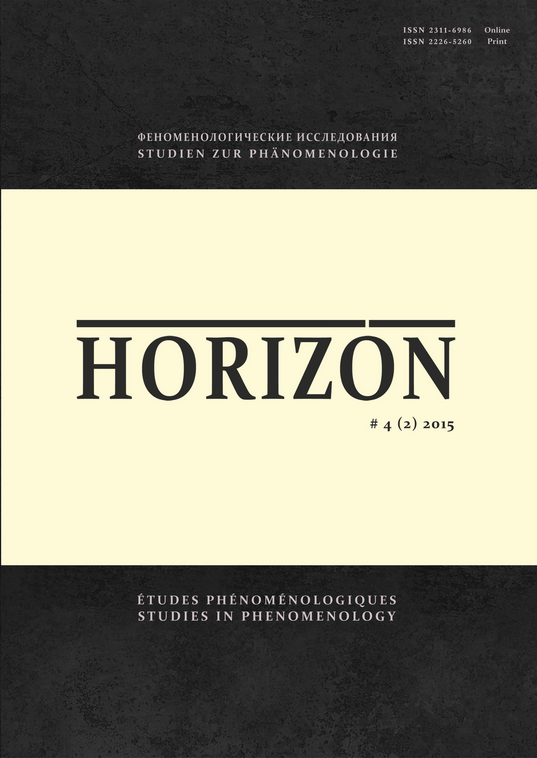THE LEFTOVER OF GOOD SENSE:
ON TRANSCENDENTAL PHILOSOPHY IN THE LIGHT
OF THE POSTSTRUCTURALIST CRITICISM
THE LEFTOVER OF GOOD SENSE:
ON TRANSCENDENTAL PHILOSOPHY IN THE LIGHT
OF THE POSTSTRUCTURALIST CRITICISM
Author(s): Georgy ChernavinSubject(s): Phenomenology
Published by: Издательство Санкт-Петербургского государственного университета
Keywords: Transcendental philosophy; poststructuralism; common sense; doxa; paradox; Husserl; Deleuze
Summary/Abstract: Radically different strategies of interacting with sound common sense, found within three big philosophicaldiscourses of the 20th century (analytic philosophy, poststructuralism, phenomenology), lednearly to the impossibility of communication between those discourses. The judgement by Deleuzeconcerning Kant’s critical philosophy and Husserl’s transcendental philosophy seems to be an exampleof the failed philosophical dialogue, this time between post-structuralism and (classical as well as modern)transcendentalism. Deleuze sees in transcendental philosophy the dominance of the twofold instanceof the common sense; the two forms are the sensus communis (which dominated already in Kant)and the bona mens (which crystallized in the Husserlian Urdoxa). Even if one could agree that the poststructuralistreading of transcendental philosophy is likely sometimes too rash, it is still helpful. Onecan then see that at the center of the research-field of transcendental phenomenology a real nodal pointof paradoxes remains: first of all, the so-called «paradox of human subjectivity» — the relation betweenthe empirical and the transcendental, which seems to be paradoxical for sound human understanding.One could contrast here the goal of transcendental research, which consists in sense-building andsense-enrichment, with the poststructuralist art of the forming, inventing and production of concepts.The passion for paradoxes, the provocation of the sound human understanding as a motor of thinking(characteristic of poststructuralism) is still bound to doxa and to the common sense, although it tries to«turn it inside out». Transcendental philosophy tries rather to take a «step back» from the solidificationof common sense in order to observe the sense-building in statu nascendi.
Journal: Horizon. Феноменологические исследования
- Issue Year: 4/2015
- Issue No: 2
- Page Range: 63-70
- Page Count: 8
- Language: English

